Year 7
Core subjects:
English
Pupils engage with a range of fiction and non-fiction texts, both complete and extracts; these are used for comprehension as well as encouraging reading for pleasure. Grammar skills are practised. Creative and transactional texts are written and personal expression is encouraged. Oracy is encouraged and developed by means of a range of activities. A test in the Autumn and a summer exam in June tests pupils’ reading by means of responses to seen and unseen literary texts and through extended writing.
Mathematics
The department follows the National Curriculum for Key Stage 3 Mathematics in England, following on work undertaken at Key Stage 2. MyMaths is used as the main resource and comprises a Students’ Book and a Homework book at three tiers of ability: support, core and extension. Assessment occurs after each topic, tests are taken at the end of the Michaelmas Term and exams are taken at the end of the Trinity Term.
French
Pupils build on previously acquired language-learning skills and are taught the importance of becoming independent learners through the competent use of dictionaries and an awareness of grammatical rules. They start to gain confidence in the four skills of listening, reading, writing and speaking and develop an awareness of the places where French is spoken.
Biology
Students will develop an understanding of ecological principles based upon the study of organisms found in the school grounds. This is followed by studying the levels of organisation from cells to organisms. In the Trinity Term the major organ systems and their functions are covered in more detail. Pupils are shown how to use microscopes and will conduct simple experiments to complement their learning and understanding of the topics covered.
Chemistry
After beginning with an introduction to laboratory work, the subject focuses on learning through practical activities. Topics covered include physical and chemical changes, elements, mixtures and compounds, and acids and bases.
Physics
In the Michaelmas term, students are introduced to a study of light and colour, including the way we perceive colours in situations ranging from pointillist painting to colour television. This is followed by an examination of the solar system, including a project on the motion of the moon and a preliminary look at the wider universe. In the Trinity term, pupils consider temperature, the thermal properties of materials and some elementary Kinetic Theory. The work throughout the year is largely non-mathematical and there is a strong emphasis on experimental investigation.
Humanities:
History
The Norman Conquest is studied in the Michaelmas Term. The Medieval Realm is covered in the remainder of the year; society and religion in the Middle Ages, the Black Death and the Peasants’ Revolt are popular topics.
Geography
The course follows the Oxford University Press Geography 123 Series Book 1. The main topics covered are map skills, exploring Britain, plate tectonics, earthquakes, volcanoes, settlements, rivers and flooding. The year group enjoys a summer term field trip – orienteering in Whinlatter Forest.
Religion, Ethics & Philosophy
We begin our senior school Religion, Ethics & Philosophy journey by looking to the east. We delve into the ancient and colourful traditions and beliefs of Hindus and then Sikhs. A fresh look at the Old Testament stories leads us to a new understanding of Christianity culminating in a mysterious and challenging Easter project. Lessons have a sense of fun, creativity and exploration, and we take our studies out of school to visit a Hindu Temple.
Non-Core Subjects:
Art
Pupils are introduced to drawing, colour, print making, three dimensional construction, patterns, perspective and group work. There is also an introduction to art history with reference to particular artists or movements. A typical project example would be investigation into a given culture. Pupils explore patterns and practise colour mixing with paints.
Classics
This comprises either Latin or Greek myths and legends. The Cambridge Latin Course is followed or a study of the War with Troy (the story of Achilles) and Return from Troy (the story of Odysseus).
Design Technology
Pupils are normally involved in two-three projects over the course of the year, designing and making each of these in wood, metal or plastic. Emphasis is placed on the development of practical hand to eye coordination skills and an introduction to computer-aided design (CAD) and manufacture. A range of common hand tools and equipment is introduced to build confidence and ability.
Games
In the Michaelmas Term, girls are coached in hockey and boys in rugby. In the Lent Term, boys take hockey and girls are coached in netball, with some pupils choosing swimming or squash. In the Trinity Term, it is cricket for boys and girls, and many also choose to participate in athletics and tennis.
Computer Science
In Year 7, students are taught the principles of information and computation, how digital systems work and how to put this knowledge to use through programming. Topics of study include: Fundamentals (including e-safety), Understanding Computers, Introduction to Computational Thinking, Coding (Kodu), Digital Creativity (DTP and graphics) and a Project.
Music
Pupils have one lesson devoted to basic music theory and keyboard skills moving through a progressive, largely practical programme. The second lesson is devoted to the study of composers and their works from the Renaissance, Baroque, Classical, Romantic and Modern eras for half of the year and the study of the instruments of the orchestra for the second half of the year.
Physical Education
Basketball and swimming are taught in the Michaelmas term. Gymnastics and swimming are taught in the Lent term. Athletics and tennis are taught in the Trinity term.

